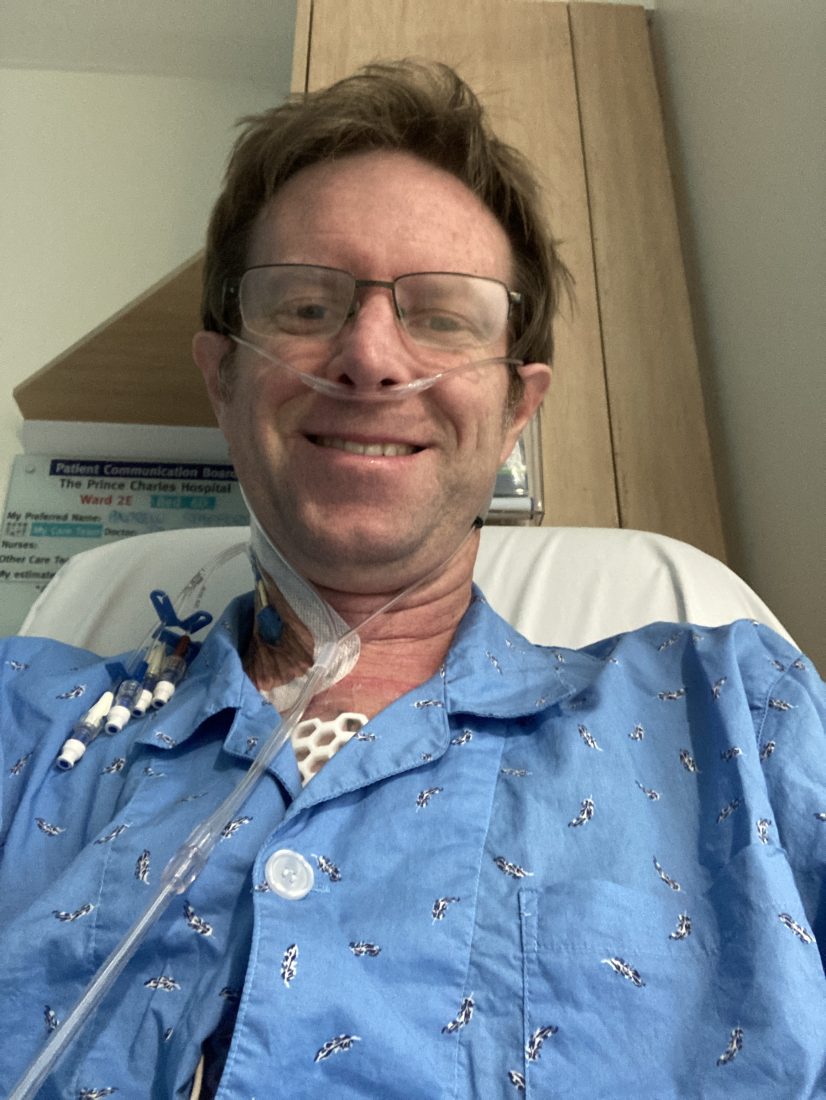The scar on my chest is seven inches long. At the top of my sternum, the incision site, it’s white and waxy, slowly fading on its journey south. But the last inch is a raised, red, rubbery knob of keloid tissue – a constant reminder, not that I need it.
It will be a year on Tuesday since I underwent open-heart surgery. I have not been quite the same person since; something for which I am mostly profoundly thankful, as much as I am to still be alive.
Mostly, I’m calmer. I had been warned of possible depression in the wake of the surgery. For years, especially in the last decade, I lived in a constant fritz of anxiety, having at least one very public meltdown. I have written openly about my mental health over the years.
These days, by comparison, I feel like a Zen master. Not that I’d recommend heart surgery as a solution to psychological trauma, but if nothing else it gave me a radical sense of perspective and gratitude, an attitude I wasn’t previously on familiar terms with.
Which means I can’t help but ask the question: to what degree was my psychological wellbeing affected by my literally broken heart? I will never know the answer to that question. Only that I didn’t know how sick I was until science and surgery saved me.
It was in late January last year that I was diagnosed with advanced valvular heart disease. Stressed and fretting over a deadline, I had a severe run of palpitations. I waited for it to pass. It didn’t: for half an hour, an hour, then 90 minutes, until I had pins and needles in my arms.
It wasn’t until paramedics wired me up, measuring my heart rate at 173 beats per minute, that it finally and inexplicably self-reverted. I pleaded to be allowed to return to my deadline. They held up the receipt spat out by the electrocardiograph and shook their heads.
Sometimes your real problems aren’t what you think they are.

I’ll spare you the story of the surgery and the aftermath, other than to say I’m now walking around with a bovine aortic valve and a repaired mitral valve. The problems were congenital; I didn’t know of the defects until they tried to kill me. Basically, my ticker was a time bomb.
The other changes are more interesting. This was a very different kind of existential crisis than the more ruminative type I was used to. I began to re-evaluate my life. I was 49 at the time of the surgery; I turned 50 in April: comparatively young, but time is no longer a luxury, either.
It would be remiss not to mention the small matter of a relationship that collapsed three weeks after coming home from hospital. Once, this would have been shattering. This time my reaction was a comparative shrug of acceptance – which is not to say it didn’t hurt, of course it did – but it was 2020, after all. It wasn’t personal.
It’s a cliche but true that you find out who your friends are in these situations. Those who were already close to me rallied. I was overwhelmed by support from strangers, too, and forged new, unexpected alliances. Those people have my love and thanks forever.
Those who were less present, again, only reminded me of my own past failures; the times when I had let others down, because I was too distracted or self-absorbed or just unable to give of myself as I wanted, because my own life was in enough of a mess.
So I found forgiveness. I had always been harsh on myself. Now I realise how hard I had been on others, too. It was all just sweet life, and humans being human: magnificently multidimensional, maddeningly inconsistent. I was no different.
Slowly, I returned to work. The surgeon told me I would feel like Superman within a month and he was right. I felt ecstatic, as though I was on an oxygen high after years of deprivation. That probably cushioned me to some degree from the blow of the breakup, too.
By November, though, I was struggling with what was probably post-perfusion syndrome, or pumphead. I felt cloudy and vague, and was having difficulty processing complex information. The fog still hasn’t quite cleared. Writing this is hard; everything takes longer than it used to.
But as much as we are running out of time – all of us – I don’t mind taking mine. Every second is a second chance. The future still fills me with existential dread but, without children of my own to protect, I try to shield myself as best I can. I find fleeting moments of joy everywhere.
Once I was drawn to extremes, particularly musical (my aesthetic could be encapsulated by a quote from Deep Purple’s Ian Gillan, later adapted by Motörhead: everything louder than everything else). Now, with everyone shouting, I dig quiet time.
Most of all, I am grateful that I live in a country where, in the middle of a global pandemic, I was admitted to one of the best cardiac hospitals in the country, under the care of a brilliant surgeon and medical team, and walked away with a bill for $74 in medications.
I am outrageously lucky. The randomness of my good fortune is never lost on me. And yet I nearly threw away my own life more than once. I had to have it nearly taken away to rediscover my lust for it.
Sometimes I think I should get the keloid part of my scar removed. It often itches, particularly under restrictive clothing, and is still growing. But it’s also a badge of honour, a part of me that would feel wrong to cut or burn away. Maybe I need to be reminded after all.
First published in the Guardian, 1 August 2021